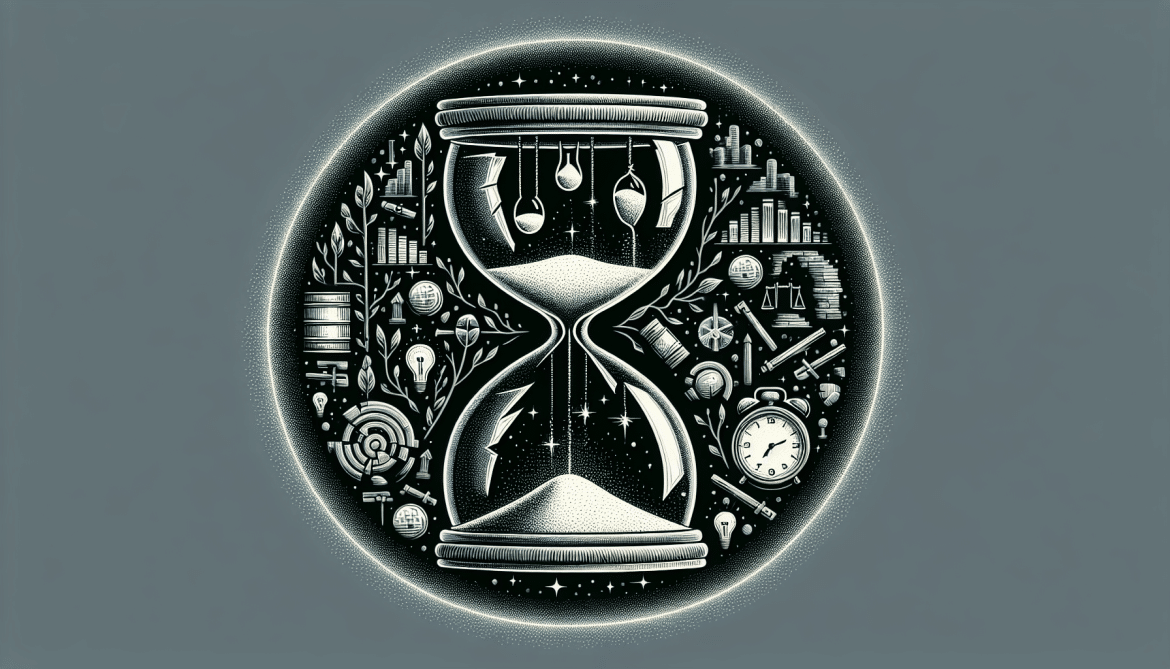Are you curious about how long it takes to obtain a bankruptcy discharge? Well, look no further! In this article, we will explore the timeline for getting a bankruptcy discharge and provide you with the essential details you need to know. From understanding the concept of debt to the factors that can impact the duration, we've got you covered. So, if you're ready to embark on this informative journey, let's dive right in!

This image is property of images.pexels.com.
Overview of a Bankruptcy Discharge
What is a bankruptcy discharge?
A bankruptcy discharge is a legal process that relieves individuals or businesses from their obligation to repay certain debts. When a bankruptcy discharge is granted, the debtor is no longer legally responsible for the discharged debts and creditors are prohibited from attempting to collect on those debts. It provides individuals and businesses facing financial hardship with a fresh start and the opportunity to rebuild their financial lives.
Why is a bankruptcy discharge important?
A bankruptcy discharge is important because it allows individuals and businesses to eliminate or reduce their debts and start afresh. It provides a way for debtors to regain control of their financial situation and relieve the burden of overwhelming debt. In addition, a bankruptcy discharge can provide protection against creditor actions, such as wage garnishment or foreclosure, helping debtors to maintain their assets and regain stability.
What debts are discharged in bankruptcy?
The specific debts that can be discharged in bankruptcy depend on the type of bankruptcy filed. Generally, unsecured debts such as credit card debt, medical bills, and personal loans can be discharged. However, certain types of debts, such as student loans, child support and alimony, court fines and penalties, and debts deemed fraudulent, may not be discharged. It is important to consult with an attorney to understand which debts can be discharged in your specific situation.
Types of bankruptcy
There are several types of bankruptcy available, but the two most common types are Chapter 7 and Chapter 13 bankruptcy.
Chapter 7 bankruptcy
Chapter 7 bankruptcy, also known as liquidation bankruptcy, is designed for individuals or businesses with limited income and few assets. In a Chapter 7 bankruptcy, a trustee is appointed to review the debtor's assets and determine if any non-exempt property can be sold to repay creditors. The remaining debts are then discharged, providing a fresh start for the debtor. Chapter 7 bankruptcy is typically a quicker process compared to other types of bankruptcy.
Chapter 13 bankruptcy
Chapter 13 bankruptcy, also known as reorganization bankruptcy or debt repayment plan, is designed for individuals or businesses with a regular income. In a Chapter 13 bankruptcy, the debtor creates a repayment plan under court supervision to pay off all or a portion of their debts over a period of three to five years. At the end of the repayment plan, any remaining eligible debts are discharged.
Timeline for a Chapter 7 Bankruptcy Discharge
Filing for Chapter 7 bankruptcy
To begin the Chapter 7 bankruptcy process, you need to file a petition and a variety of other necessary documents with the bankruptcy court. These documents include a list of your assets, liabilities, income, and expenses, as well as information about any contracts or leases you may have. Once your petition is filed, an automatic stay is issued, which prevents creditors from taking any further collection actions against you.
Meeting of creditors
Shortly after filing for Chapter 7 bankruptcy, you will be required to attend a meeting of creditors, also known as the 341 meeting. During this meeting, you will be asked questions by the bankruptcy trustee and any creditors who may choose to appear. This meeting allows the trustee and creditors to gather information about your financial situation and determine if there are any assets that can be used to repay your debts.
Time to object to discharge
After the meeting of creditors, there is a specific timeframe during which creditors or the trustee can raise objections to the discharge of your debts. They may do so if they believe you have committed fraud, concealed assets, or otherwise abused the bankruptcy system. If no objections are raised, your debts will be discharged upon the completion of the next steps in the bankruptcy process.
Financial management course
Before receiving a discharge, individuals filing for Chapter 7 bankruptcy are required to complete a financial management course approved by the bankruptcy court. This course aims to educate debtors on personal financial management strategies and help them avoid future financial difficulties. It must be completed within a specific timeframe, typically within 60 days of the first scheduled meeting of creditors.
Discharge of debts
Once you have completed all the necessary steps and requirements, your debts will be discharged in a Chapter 7 bankruptcy. This means that you are no longer legally obligated to repay those debts, and creditors are prohibited from attempting to collect on them. The discharge of debts provides you with a fresh start and the opportunity to rebuild your financial life without the burden of overwhelming debt.
Factors Affecting the Chapter 7 Discharge Timeline
Complexity of case
The complexity of your bankruptcy case can impact the timeline for receiving a discharge. Cases with more complex financial situations, such as those involving multiple properties, significant assets, or business-related debts, may require additional time for the bankruptcy court to review and analyze the information provided.
Lack of required documentation
The lack of required documentation can delay the discharge process. It is essential to ensure that you gather and submit all necessary documentation accurately and in a timely manner. Failure to provide the required documentation can result in delays and may even lead to a dismissal of your bankruptcy case.
Creditor objections
If a creditor or the bankruptcy trustee raises objections to your discharge, it can significantly prolong the timeline for receiving a discharge. Objections can be raised if the creditor believes you have engaged in fraudulent activity or if they dispute the eligibility of certain debts for discharge. Resolving these objections may require additional court proceedings and can extend the overall discharge timeline.
Court backlog
The backlog in the bankruptcy court system can impact the timeline for receiving a discharge. If the court is experiencing a high volume of bankruptcy cases, it may take longer for your case to be reviewed and for a discharge to be granted. This backlog can vary depending on the jurisdiction and current caseload of the court.
Prior bankruptcy filings
If you have previously filed for bankruptcy, it can affect the timeline for receiving a discharge. Depending on the timing of your previous bankruptcy filing and the type of bankruptcy you filed, you may need to wait a certain period before being eligible for another discharge. For example, if you previously received a Chapter 7 discharge, you may need to wait eight years before being eligible for another Chapter 7 discharge.
Compliance with court requirements
It is crucial to comply with all court requirements and adhere to the deadlines set by the bankruptcy court. Failure to do so can result in delays and may even lead to the dismissal of your bankruptcy case. It is advisable to work closely with your bankruptcy attorney to ensure all court requirements are met in a timely manner.
Timeline for a Chapter 13 Bankruptcy Discharge
Filing for Chapter 13 bankruptcy
To begin the Chapter 13 bankruptcy process, you need to file a petition, along with the necessary supporting documents, with the bankruptcy court. These documents include a repayment plan outlining how you intend to repay your debts over the next three to five years. Once your petition is filed, an automatic stay is issued, preventing creditors from taking further collection actions against you.
Confirmation hearing
Following the filing of your Chapter 13 bankruptcy petition, a confirmation hearing will be scheduled. During this hearing, the bankruptcy court will review and either approve or modify your proposed repayment plan. The confirmation hearing is an opportunity for creditors to raise objections to the plan, but it also allows you to propose any necessary modifications based on feedback from the court or creditors.
Repayment plan
Once your Chapter 13 repayment plan is approved by the court, you will begin making monthly payments to the bankruptcy trustee. The trustee will distribute these payments to your creditors according to the terms of your plan. The repayment plan typically spans three to five years, depending on the specific circumstances of your case and the court's approval.
Completing the plan
During the repayment period, it is essential to adhere to the terms of your Chapter 13 plan and make timely monthly payments to the trustee. It is crucial to prioritize meeting your financial obligations and maintaining compliance with the plan. Failure to do so may result in your case being dismissed or modified, extending the timeline for receiving a discharge.
Discharge of debts
Upon successfully completing your Chapter 13 repayment plan, remaining eligible debts are discharged. The discharge provides relief from the obligation to repay those debts, allowing you to move forward with a fresh start. However, it is important to note that certain debts, such as long-term obligations like mortgages, may not be fully discharged and may still require ongoing payment.

This image is property of images.pexels.com.
Factors Affecting the Chapter 13 Discharge Timeline
Income level
Your income level can impact the timeline for receiving a Chapter 13 discharge. If your disposable income is higher, your repayment plan may require larger monthly payments, resulting in a shorter repayment period. On the other hand, individuals with lower disposable income may have longer repayment periods, potentially extending the discharge timeline.
Debt amount
The amount of debt you need to repay can affect the timeline for receiving a discharge in Chapter 13 bankruptcy. Higher debt amounts may require more time and larger monthly payments to complete the repayment plan, leading to a longer overall process. Conversely, lower debt amounts may be repaid more quickly, allowing for a shorter discharge timeline.
Plan duration
The duration of your Chapter 13 repayment plan can impact the discharge timeline. Plans that span three years will generally result in a faster discharge, while five-year plans may take longer to complete. The specific plan duration is typically determined by factors such as income, disposable income, and the amount of debt being repaid.
Creditor objections
If creditors raise objections to your Chapter 13 plan, it can significantly extend the discharge timeline. Objections can be raised if creditors dispute the repayment terms or believe they are not receiving a fair share of the repayment plan. Resolving these objections may require additional negotiations or court proceedings, prolonging the overall process.
Compliance with plan requirements
Strict compliance with your Chapter 13 repayment plan is essential to ensure a timely discharge. Failure to make timely monthly payments or meet other requirements outlined in your plan can result in dismissal or modification of your case. It is vital to work closely with your bankruptcy attorney to understand and meet all plan obligations to avoid delays in the discharge process.
Discharge of Specific Debts
Student loans
In most cases, student loans cannot be discharged in bankruptcy unless the debtor can prove undue hardship. Proving undue hardship is difficult and typically requires demonstrating that repaying the loans would cause significant financial strain now and in the future.
Child support and alimony
Child support and alimony obligations cannot be discharged in bankruptcy. These debts are considered priority debts, and individuals filing for bankruptcy remain responsible for making these payments even after receiving a discharge for other eligible debts.
Taxes
Tax debts can be discharged in bankruptcy under certain circumstances. Generally, income taxes owed for tax years at least three years before the bankruptcy filing date may be dischargeable, provided specific criteria are met. Additional requirements, such as timely filing of tax returns and meeting certain timing criteria, may apply.
Court fines and penalties
Court fines and penalties are generally not dischargeable in bankruptcy. These debts are typically considered non-dischargeable as they are related to criminal or civil offenses. Individuals filing for bankruptcy must continue to meet their obligations to pay court fines and penalties even after receiving a discharge for other eligible debts.
Debts deemed fraudulent
Debts that are obtained through fraudulent means or fraudulent intent may not be dischargeable in bankruptcy. This includes debts incurred through deliberate misrepresentation, false pretenses, or fraudulent actions. Creditors can challenge the dischargeability of debts they believe to be fraudulent, and the bankruptcy court will determine whether they can be discharged.
Debts from personal injury cases
Debts arising from personal injury cases can be discharged in bankruptcy, with some exceptions. Generally, if the injury was caused by negligence or intentional harm, the debts related to the injury can be discharged. However, if the injury was caused by drunk driving or other forms of misconduct, the debts may not be dischargeable.

This image is property of images.pexels.com.
Benefits of a Bankruptcy Discharge
Fresh start
One of the primary benefits of a bankruptcy discharge is the opportunity for a fresh start. By eliminating or reducing overwhelming debts, individuals and businesses can regain control of their finances and rebuild their financial lives. It provides relief from the burden of debt and the stress associated with financial hardship.
Elimination of debt
A bankruptcy discharge allows individuals and businesses to eliminate or reduce their debts. Discharged debts are no longer legally owed, providing a clean slate and freeing up financial resources. This allows debtors to focus on meeting their current financial obligations and rebuilding their credit.
Prevention of creditor actions
Upon receiving a bankruptcy discharge, creditors are legally prohibited from attempting to collect on discharged debts. This means that debtors are protected from creditor actions such as wage garnishment, lawsuits, and harassment. The discharge provides debtors with a sense of stability and protection against further financial difficulties.
Consequences of Bankruptcy
Negative impact on credit score
Filing for bankruptcy can have a negative impact on your credit score. A bankruptcy filing will remain on your credit report for a significant period, typically seven to ten years. This can make it challenging to obtain new credit, qualify for loans, or secure favorable interest rates in the future. However, with responsible financial management and the passage of time, it is possible to rebuild your credit score over time.
Limited access to credit
After filing for bankruptcy, access to credit may be limited. Lenders may be hesitant to extend credit to individuals with a bankruptcy history due to the perceived risk. However, there are options available to begin rebuilding credit, such as secured credit cards or loans, and demonstrating responsible financial management can help improve creditworthiness over time.
Difficulty in obtaining loans
Obtaining loans, particularly those with favorable terms, can be challenging after bankruptcy. Lenders may view applicants with a bankruptcy history as high-risk borrowers and be less willing to offer loans. However, some lenders specialize in providing loans to individuals who have experienced bankruptcy, albeit at higher interest rates or with more stringent terms.
Mandatory disclosure
Individuals who have filed for bankruptcy are required to disclose this information when applying for certain types of credit or employment. Bankruptcy filings are a matter of public record, and failure to disclose this information when required can result in severe consequences, including the denial of credit or employment.
Working with an Attorney
Hiring a bankruptcy attorney
It is highly recommended to work with an experienced bankruptcy attorney when navigating the bankruptcy process. An attorney can provide valuable guidance, ensure you meet all legal requirements, help protect your rights, and improve the chances of a successful discharge. They can also assist in resolving any challenges or objections that may arise during the process.
Attorney's role in the process
A bankruptcy attorney plays a crucial role in guiding you through the bankruptcy process. They will evaluate your financial situation, help determine the most appropriate type of bankruptcy to file, and guide you in gathering the necessary documentation. They will also represent you during court proceedings, negotiate with creditors, and advocate on your behalf to ensure the best outcome.
Choosing the right attorney
When selecting a bankruptcy attorney, it is essential to choose someone who specializes in bankruptcy law and has experience handling cases similar to yours. Look for an attorney with a good reputation, positive client reviews, and a track record of successful outcomes. It is also crucial to feel comfortable and have good communication with your attorney, as they will be assisting you throughout the bankruptcy process.
Importance of legal advice
Obtaining legal advice from an experienced bankruptcy attorney is crucial when considering bankruptcy. Bankruptcy laws are complex, and navigating the process can be challenging without proper guidance. An attorney can help you understand your rights, assess your options, and ensure that your bankruptcy filing follows the necessary legal requirements. With their expertise, they can help you achieve the best possible outcome for your financial situation.
Conclusion
A bankruptcy discharge provides individuals and businesses facing financial hardship with a fresh start and the opportunity to regain control of their financial lives. Whether through Chapter 7 or Chapter 13 bankruptcy, the discharge of debts allows debtors to eliminate or reduce overwhelming debts and protect themselves from creditor actions. While there are factors that can affect the timeline for receiving a discharge and potential consequences of bankruptcy, working with an experienced bankruptcy attorney can help navigate the process and ensure the best possible outcome. It is important to understand the specifics of your situation, consult with a professional, and explore all available options before proceeding with a bankruptcy filing.

